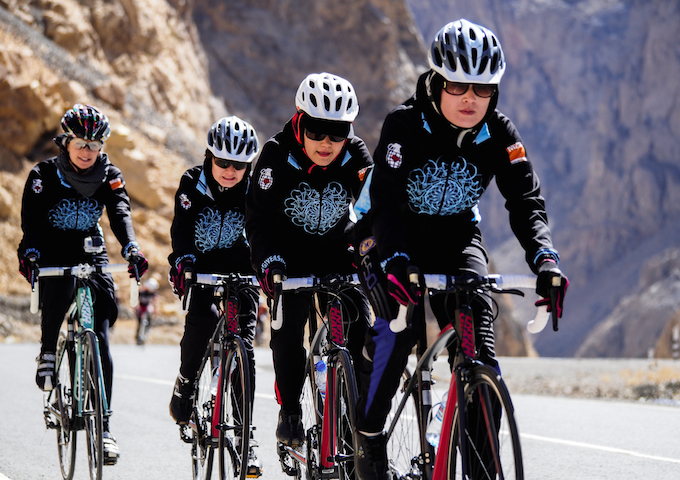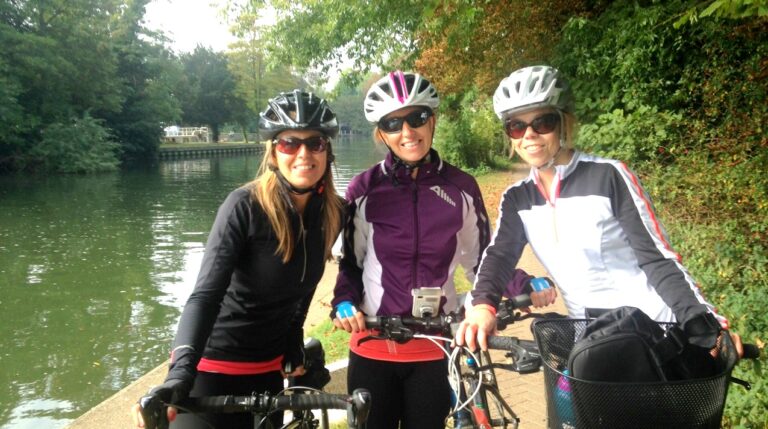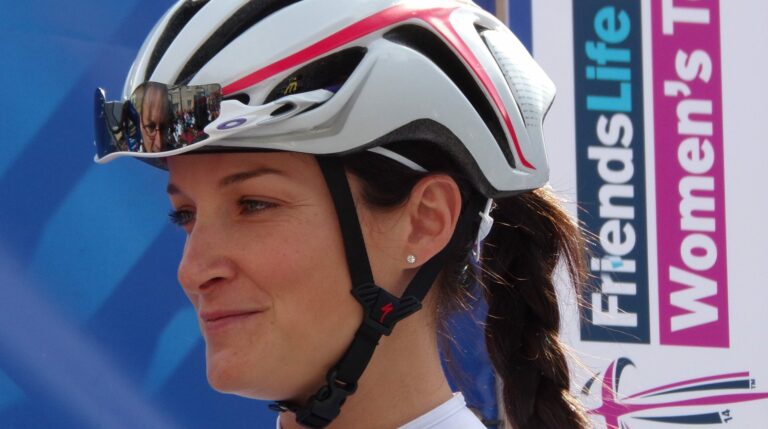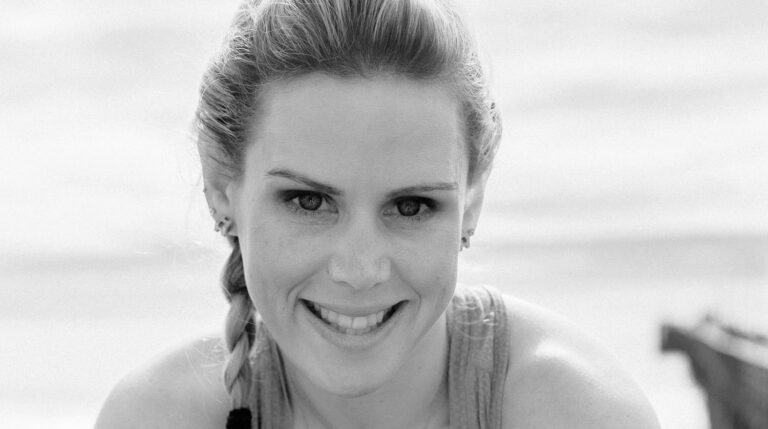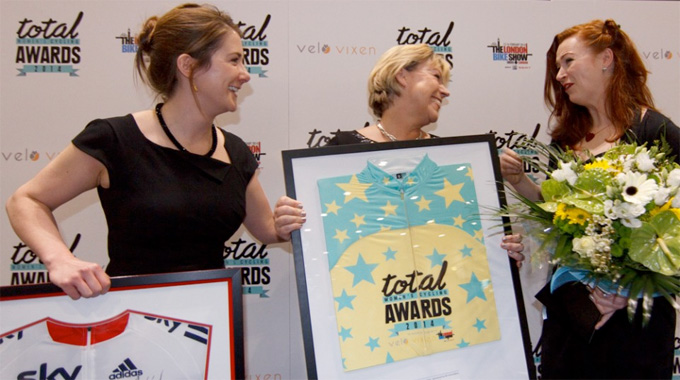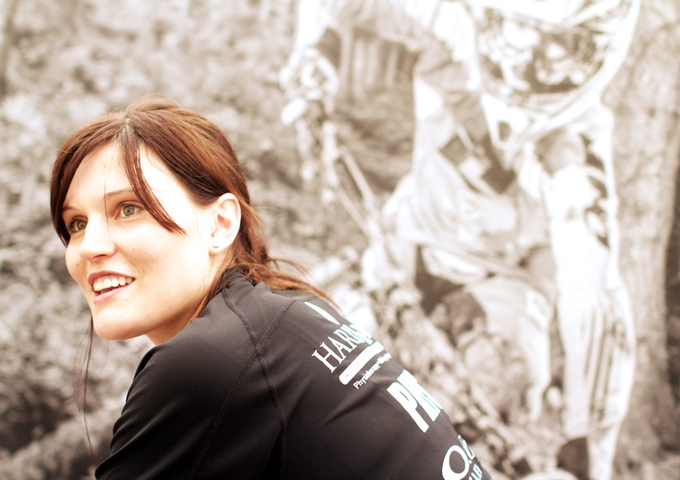
Cycling is a sport that’s brilliant for your health, for the most part. But competing at World Cup level can take its toll on an athletes body, particularly if that athlete is a downhill mountain biker, known throwing themselves down crazy courses at high speeds. Injuries are common, and sports physiotherapists play an integral role in ensuring athletes like Rachel and Gee Atherton are able to perform to the highest level.
Laura Robson is a sports physiotherapist on the High Performance Team at Harris and Ross. She travels the world with the Athertons and the GT Factory Team as they race in the UCI Mountain Bike World Cup Series.
Can you tell us about your job, and what you are doing right now?
I’m the physiotherapist from Harris and Ross, and we work with the GT Factory Team, so I travel round with them for the World Cup series. Right now I’m just giving Gee a recovery massage after a practice run.
Sounds like you get to travel a fair bit! How did you get into this role?
I guess it was my love of sports, and the body, that drew me to it. I’ve been doing it since I qualified in 2011. Because I started as more of a mature student, I accelerated into the sport side quite quickly – that was my specialism, what I really enjoyed.
I started working with the British Super Bikes Team, and worked my way from there and now I’m here!
What drew you to sports physiotherapy in particular?
I think it’s because I love sports myself, so I can relate to the athletes. I enjoy the environment and the atmosphere, I feel I fit in. Personally, I go mountain biking, running and snowboarding, so the more extreme sports – which is probably why I like being around these guys!
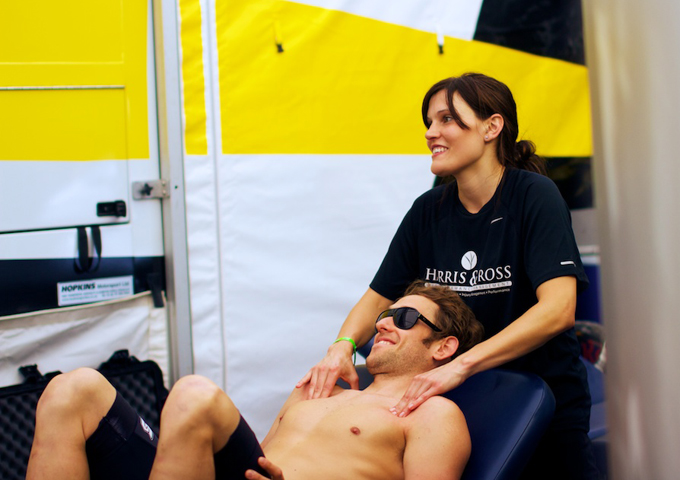
What does your job actually involve?
Each of the athletes in the team have a warm-up exercise routine to do before racing, so they all have their own specific exercises they’ll do and I work on any areas of weakness they might have. I’m also around all the time if they have any injuries or any little niggles to deal with – and of course major crashes too.
At the end of a day of racing they will get some recovery treatment, which will make sure they are ready for the next day, and I often work in the evening too.
What kind of skills do you need?
It’s important to work really closely with the athletes, and good communication is key to this. That’s how I know what’s going on with their bodies. If they have any injuries, I need to keep on top of them to make sure it’s not preventing them from racing or slowing them down.
Cyclists tend to be very anterior dominated; they’re always in that biking position. That means they are very strong up front by tend to have a weak posterior chain; the glutes, the back muscles and so on, so that needs some work. I’d give exercises to work those areas specifically.
Harris and Ross, the company I work for, deliver high-performance specific training regimes for each athlete, so we’ll triage them, screen them and make sure we are treating each area they need. It’s very individual to the athlete – there’s no set recipe.
What advice would you give someone who wants to become a sports physiotherapist for a cycling team?
Get your head down and work really hard! Show a lot of passion and enthusiasm. A lot of it is who you know, and if you show that you are really passionate and enthusiastic about something, people feed off that and they enjoy it, and they’ll see you are willing to work hard.
And of course, have interest in the sport itself! It’s great to be a part of it.
Like this? You’ll love these!
Women in the Bike Biz: Gill Harris, Atherton Racing PR and Marketing
Women in the Bike Biz: Martina Boggot, Online Editor for Dirt Magazine Germany
Mountain Bike Holiday Destination Guide: Whistler, Canada
10 of the Best Mountain Bikes for Under £1000

